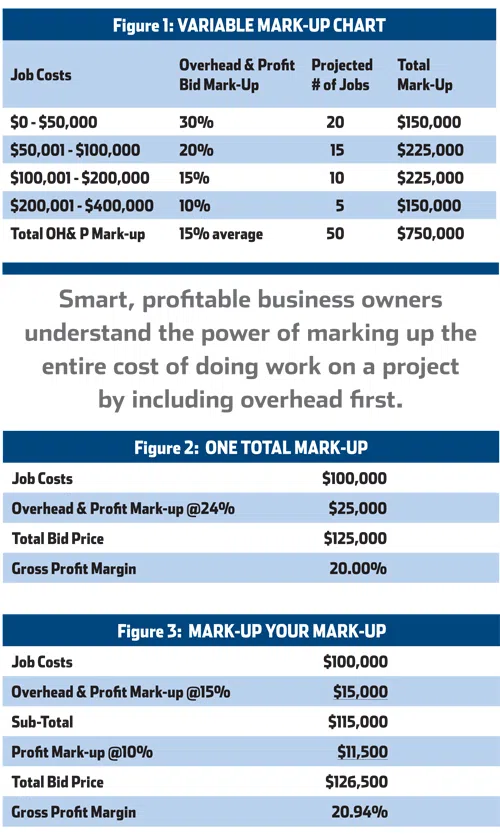Why commercial contractors need to get 'tough' on payments.
The construction business used to be easy. All you had to do was design, bid, build, and bill. Submitting bids that were clear, complete, and competitive would get you more jobs. Doing high-quality work, according to the plans and on time, kept customers happy. And when you submitted bills in a timely manner, you always got paid. But what happened? Now, it sometimes takes 90 days or longer to get paid and often six months or more for the final retention payment. Clients run out of money before projects are finished, and construction loans don’t provide enough money to handle every change order, upgrade, or unforeseen field conflict.
Be Firm But Fair
Collecting money owed to you by customers takes time, organization, and effort. Most contractors have too much faith in their customers and are optimistic about getting paid without proper paperwork and required signatures on contracts or change orders. When I ask contractors what their biggest challenge is, they often say getting paid. Yet they rarely stop work or place liens on projects when they aren’t getting paid because they don’t want to jeopardize customer relationships. They also continue to do repeat work for these same customers who don’t pay on time.
Train Your Customers
As a general contractor, I have learned that you can train your customers. If you are tough, you get more respect and paid faster. If you are soft, you get overlooked and have to wait for your money. Tough contractors never do extra work without signed change orders, and they always place liens on projects when they don’t get paid. They usually get paid first, and their change orders get signed before others. Train your customers by teaching them how you want them to do business.
Rules for Getting Paid Fast
You can collect only if your customer has the money. Always verify your customer has enough money to pay you. Before starting a project or doing extra work, insist on reviewing the loan documents or calling the banker to verify funding.
You can collect only if you are owed the money. Before doing any extra work, get your customer’s approval and signature for it. Never do work without proper approvals.
You can collect only if you bill according to your contract. Experience shows that half of invoices contractors submit are rejected the first time because they were not prepared according to contract terms. Always invoice on time, use the right billing format, and include all of the required lien releases for suppliers and subcontractors.
Checklist for Fast Payment
1. Always send preliminary lien notices.
2. Your invoices must include all the required paperwork, cost breakdowns, and lien releases.
3. Never bill for unexecuted or unapproved change orders as part of a progress payment request.
4. Submit separate invoices for change orders not yet executed. Customers often pay for small change orders on a separate invoice with a clear and detailed cost breakdown of the work done.
5. Follow-up and be persistent. Call or visit the customer at least every 10 days to check on unpaid invoices. And make sure you are talking to the right person.
6. Notify the customer of your intent to stop work and/or file a lien unless paid per the contract. Send or fax your notice as soon as your money is overdue. A friendly 10-day written warning will get the customer’s attention and, oftentimes, get immediate payment. Also, send a copy of the warning to the project owner or lender.
7. Never give up your lien rights, and always file a lien when you don’t get paid per the contract.
8. Always file a lawsuit quickly to collect on unpaid invoices and liens. Be prepared to start legal proceedings within 30 days after filing to speed up the collection process. Usually this action alone will expedite payments.
Suggestions for Getting Paid Faster
Even if you bill according to the contract, and your customer has the money, and executes all the necessary approvals, you may still not get paid as fast as you want. Try offering a 3% discount if paid in full within 10 days without retention. You can make special deals such as faster completion or reduced prices in exchange for better payment terms. Some contractors specify no retention, payments every seven days, payments in advance, a 5% penalty if not paid within 10 days, or payment up front for materials. You can also charge interest or late fees for slow pay if agreed to in your contract.
You Are In Business To Make A Profit
It is impossible to build a business without getting paid. When you don’t get paid on-time, doing good work won’t keep your doors open. Train your customers by insisting on prompt payment. Do more than design, bid, build, and bill. COLLECT!
George Hedley is the best-selling author of “Get Your Business to Work!” available at his online bookstore. He is an entrepreneur, speaker, and business coach. E-mail him at gh@hardhatpresentations.com to request a free copy of “Business Tools To Boost Your Bottom-Line!” For more information, call 800-851-8553 or visit www.hardhatpresentations.com.



